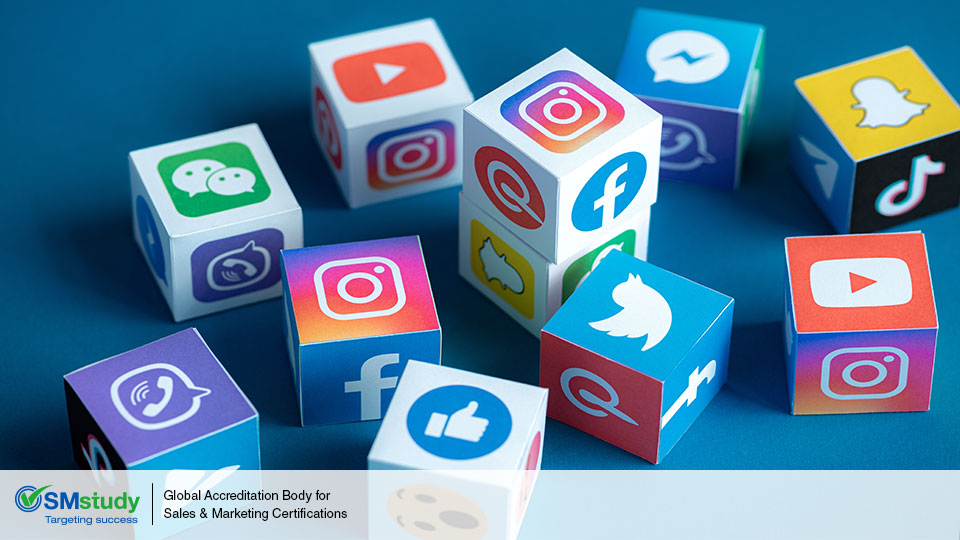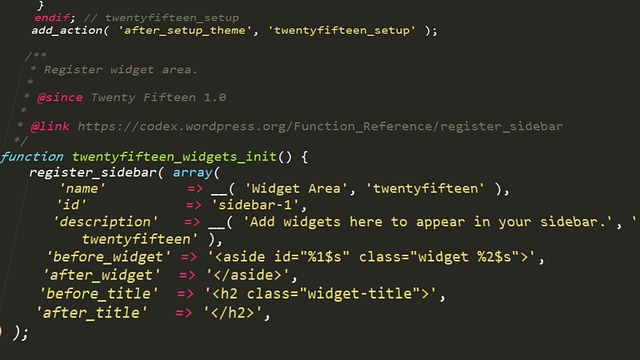What role does Artificial Intelligence play in Marketing? How is it transforming the way businesses approach their marketing strategies? Are software development companies leading the charge in enhancing Marketing Automation? These are vital questions that deserve careful consideration in our rapidly digitizing world.
The emergence of AI applications in the marketing sphere has raised a variety of issues, some of which are more pressing than others. Multiple authoritative sources, such as Forbes and TechCrunch, have highlighted the challenges stemming from the integration of AI and marketing. These issues range from data privacy concerns to the need for more technical expertise. The situation calls for decisive solutions specifically suited to tackle these predicaments in the US market, a region leading in digital marketing and AI innovation.
In this article, you will discover how software development companies are revolutionizing the landscape of marketing automation through AI. Understand the importance of AI in granting businesses an edge in the current competitive market setting, how it enhances efficiency, and its transformative power in customer relationship management.
In the quest to explore how AI is transforming businesses, we’ll delve into case studies of successful integrations, analyze predictions for future trends, and consider expert insights on incorporating AI into your own marketing strategies. This comprehensive guide will empower you to use AI’s disruptive potential to its fullest.

Understanding Key Definitions: AI, Marketing, Software Development and Marketing Automation
Artificial Intelligence (AI) refers to the development of computer systems that can perform tasks usually needed human intelligence, such as making decisions, recognizing speech, or predicting trends.
Marketing involves promoting or selling products or services, typically encompassing research, advertising, sales, and customer service.
Software Development Companies are organizations that create and maintain software applications, systems and platforms.
Finally, Marketing Automation involves using software to automate repetitive tasks in marketing, such as sending emails, managing social media, or tracking customer interactions, freeing marketers to focus on more strategic tasks. This is where AI comes in, enhancing the performance of these automated tasks and contributing to more effective marketing strategies.
How AI is Revolutionizing Software Development Companies and their Approach to Marketing Automation
Transformative Impact of AI on Software Development Companies
Artificial Intelligence (AI) is dramatically altering the landscape of numerous industries, and the software development sector is no exception. With the advent of AI, software development companies are witnessing lucrative opportunities to amplify their efficiency, productivity, and profitability. Moreover, AI is significantly enhancing the software development lifecycle (SDLC), from initial concept creation to final software deployment, maintenance, and upgrades.
Primarily, AI is assisting in bug detection and code generation, thus alleviating the stress of developers and reducing the chances of human error. Furthermore, AI algorithms can automate time-consuming and mundane tasks, freeing up developers’ time for more intricate and creative tasks. Adaptive AI systems are continuously learning from their surroundings and from past experiences, thereby aiding in predicting outcomes, enhancing decision-making, and reducing the development time and cost.
AI-driven Marketing Automation: A Game-Changer for Software Firms
In addition to revolutionizing software development, AI is also redefining the marketing strategies of these companies. Recognizing the immense potential of AI in marketing automation, software development firms are embracing it to augment their marketing endeavors. Leveraging AI, companies are streamlining their marketing automation processes, engaging customers more effectively, and achieving better results.
- AI facilitates high-level customer segmentation based on various parameters such as browsing behavior, purchase history, and demographics, empowering personalized customer interaction.
- Powered by AI, predictive analytics provides valuable insights into customer behavior, permitting companies to predict future actions and devise their marketing strategies accordingly.
- AI-driven chatbots and virtual assistants are enabling 24/7 customer service, thus enhancing customer satisfaction and engagement.
- Artificial Intelligence allows A/B testing of numerous marketing strategies and measures their effectiveness, thereby assisting in optimizing marketing campaigns.
These AI-enabled enhancements are not just streamlining operations but also elevating customer satisfaction, leading to sustained profitability. By harnessing the power of AI in both software development and marketing automation, software companies are setting the stage for long-term success in the highly competitive global market.
Through incorporating AI into their operational and marketing strategies, software development firms are reshaping their identities from traditional coding houses to dynamic, innovative, and customer-centric businesses. Indeed, the confluence of AI and software development symbolizes a new era of technological evolution and commercial success.
Unraveling the Role of AI in Upping the Ante for Software Development Companies in Marketing Automation
The Transformative Effect of AI on Marketing
Is there a way to have a deeper, more insightful understanding of the target audience while also personalizing marketing strategies? The key, it seems, is the application of artificial intelligence in marketing. The cutting-edge technology, with its ability to analyze and interpret massive amounts of data, has transformed the marketing landscape in previously unimagined ways. Companies specializing in software development have been prompt to adapt and capitalize on these advancements, enabling them to deliver marketing automation solutions that combine speed, efficiency, and accuracy.
This forward-thinking approach stems from AI’s unique capabilities. It can thoroughly analyze consumer behavior and predict future trends, ensuring marketing strategies are more accurate and targeted. It can also refine these methods over time, thanks to machine learning algorithms that learn and adapt from past experiences and data patterns. This adaptability guarantees that marketing efforts are not stagnant and that companies stay ahead of their competition and in tune with their audience’s changing preferences.
Addressing the Challenge of Personalization at Scale
However, while the potential benefits are immense, the implementation of AI in marketing is not without its challenges. The main difficulty lies in the scale of operations. Companies with millions of customers grapple with the task of delivering personalized content to each individual while maintaining the efficiency and consistency of their marketing efforts. Traditional marketing methods are not cut out for this level of customization, and manual data analysis is often too slow and error-prone to keep pace with the rapid changes in consumer behavior.
AI can overcome this hurdle by automating complex tasks and processing vast amounts of data at high speed. For instance, AI can segment customers based on their shopping habits, online behavior, and personal preferences. With this nuanced understanding of the customer base, companies can tailor their marketing campaigns to cater to individual needs, resulting in increased customer engagement and, ultimately, sales.
Companies Harnessing the Potential of AI
Tech companies have shown impressive ingenuity in harnessing the potential of AI in their marketing endeavors. Amazon, for instance, uses AI to predict buying habits, suggest products, and personalize shopping experiences, resulting in an increased conversion rate. Netflix has used machine learning algorithms to analyze viewing patterns and preferences, optimizing recommendations for millions of users around the world.
Similarly, in the realm of social media, Facebook and Instagram have harnessed AI to offer targeted advertising based on users’ online behavior and interactions. Enterprises in the software development sector are following suit, leveraging AI to create intelligent marketing automation tools that offer predictive analytics, personalization, and adaptive marketing strategies. This progress underscores the crucial role of AI in modern marketing, ensuring businesses remain competitive in an increasingly digital world.
Decoding the Confluence: Emergence of AI in Software Development Companies as a Catalyst for Marketing Automation
Pondering on AI’s Impact in the Software Development Realm
Have you mulled over how Artificial Intelligence has revolutionized the software advancement area? Artificial Intelligence has significantly evolved in the software development industry, spurring a series of ground-breaking enhancements. AI, with its ability to mechanize complex tasks, can foresee human behavior, thereby making strategic targeting easier. This exciting confluence of AI and software development firms has brought about a profound transformation, empowering new-age marketing automation.
The amplifying complexities and costs of conventional software development cycles are leeching companies off critical resources — this is where the hurdles lie. The quest to keep abreast of changing customer preferences while budgeting resources is a challenge that constantly nudges companies. The time-consuming approaches, coupled with the skyrocketing costs, stirred the need for an automation revolution in the marketing landscape — leading companies to lean upon AI’s prowess.
AI-led Marketing Automation: Models of Excellence
A plethora of tech companies have ventured into the terrain of AI-led marketing automation, and the success stories are plenty. International Business Machines (IBM) has set a paradigm with its AI-powered marketing automation tool, “Watson.” Watson enables marketers to create personalized customer interactions. The tool leverages AI’s potential to garner insights from vast volumes of data, aiding marketers to craft targeted messages for customers. On the other hand, Salesforce’s ”Einstein AI” equips users with predictive analytics and automation capability, substantially reducing the manual tasks for marketers. These examples are illuminating pathways of AI-based marketing automation for numerous organizations across the globe. Consequently, such implementations single out the encouraging possibilities of AI in the software development industry, positioning it as a catalyst for marketing automation.
Conclusion
Isn’t it fascinating that the realms of artificial intelligence and marketing, once seen as entirely echo spheres, now seamlessly converge to shape the future of business? Innovation and growth in software development companies have enabled marketing automation, paving the way for precise targeting, improved customer experiences and an overall enhancement of marketing strategies. The union of AI and marketing has proven to be more than a passing fad or a wave to simply ride out, but instead marks the advent of a revolution in the way we do business.
We invite you to stay engaged with our updates as we persistently follow this remarkable revolution. There is much to be learned, understood, and applied from the strides in AI, especially in relation to marketing. Our blog is dedicated to exploring and sharing insightful knowledge about these recent developments. Your participation in this journey only enriches the discourse, and we’re thrilled to have you join our community of enthusiastic learners and industry insiders.
Lastly, we’ve got a host of fresh insights cooking in our content kitchen. Be sure to keep an eye out for our upcoming releases, which will dive deeper into the intricacies of AI in marketing, delivering knowledge on how software development companies continue to refine marketing automation. In an ever-evolving world, it pays to stay at the forefront of knowledge. Together, we will delve into the interesting dynamics of this technological advancement, unearthing valuable insights to benefit your business and personal growth alike.
F.A.Q.
1. What role does AI play in enhancing marketing automation?
AI has significantly changed the landscape of marketing automation by providing advanced functionalities like predictive analytics and consumer behavior insights. It can tailor marketing strategies according to individual needs and preferences, thus improving customer experience and boosting sales.
2. How do software development companies participate in this process?
Software development companies create and improve AI-driven marketing automation tools. They enhance these tools with features like data analysis, predictive modelling, customer segmentation, and more, to make marketing strategies more effective.
3. What are some examples of AI in marketing automation?
Examples of AI in marketing automation include chatbots for customer service, AI-based email marketing, predictive customer behavior, targeted advertising, and social media monitoring. All these techniques are focused on efficient customer engagement and personalized customer experience.
4. Are there any specific functions that AI brings to marketing automation?
Yes, AI helps in several key areas like predictive analytics, customer segmentation, personalized content creation, data-driven decision making, and many more. It essentially helps in understanding customer behavior and preferences to drive more targeted and effective campaigns.
5. What are the benefits of using AI in marketing automation?
AI in marketing automation leads to increased productivity, as it can rapidly analyze and make predictions from huge volumes of data. Moreover, it allows for personalized marketing, which results in improved customer satisfaction and increased profitability.

